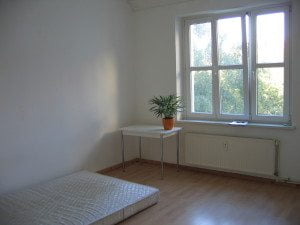

Energy
Sustain Today, Save Tomorrow
Many of us believe that making a positive impact on the environment can only be achieved if we all make small changes in our day-to-day lives. We all know the basic ways of decreasing our carbon footprint. Whether it’s remembering to take your electrical appliances off of stand-by, not filling the kettle to the very top if you’re just making a cup of tea, or choosing energy saving light bulbs over conventional ones. Tips on how you can live a more sustainable life have been written about on Blue and Green Tomorrow before. Whilst changing your little habits certainly help, what can we do to make an impact in the long term?
The answer lies within our homes. The lure of so-called ‘nil-bill’ homes for those in the housing market has become increasingly prevalent over the last few years, with some of the finest examples costing as little as £3 a day to run. Realistically, for the vast majority of us, being able to build a fully sustainable green home from scratch isn’t a viable option. But there are a number of things that we can do to our current homes that have the potential to contribute to leading a greener, more sustainable life-style.
A great secondary effect of creating a sustainable home is the amount of money that you can save. This handy infographic details the areas of your home where you are most likely to lose money, due to many of our homes not originally being built with environmental considerations. With this information in mind, here are some of the most effective sustainable ideas that you can implement in your home today that will lead to you saving money in the future.
Double Glazing
Thanks to years of irritating door-to-door salesman, the thought of installing double glazing within your home quite unfairly comes with a lot of negative connotations. There are a great many companies in the UK that provide high standard double glazing. It’s something to consider as so much heat energy is unnecessarily lost through the windows of a house. The Energy Saving Trust states that a detached house with A rated double glazing can save as much as £160 a year on energy bills. A saving that significant is too large to ignore.
Solar Panels
The idea of installing solar panels in a British home is considered a risky strategy due to our diverse weather patterns. In recent years however, the technology has become more efficient in gathering the energy of the sun. A few years ago, Energy Minister Greg Barker sated that installing solar panels in your home would be a better investment than a pension. It’s hard to argue with this point of view as not only can you save money on utilities bills, any extra electricity that has been generated by your solar panels can be sold back to the National Grid. It’s a win-win situation!
Heat Recovery
The process of heat recovery is perhaps not a method of home energy efficiency that is as widely known as the likes of installing double glazing or solar panels, but is an effective way making your home more environmentally friendly. The process works by using a ventilation system to extricate air from rooms within your home that are wet, such as the bathroom, taking the heat energy from this air and applying it to fresh air that is drawn from outside. This warm, fresh air is then redistributed into other areas of your home. The process can lead to up to 95% of heat being recovered, and results in traditional heating not being relied on as heavily in order to warm your home. Heat recovery systems are yet another way of adding value to your home through sustainability.
Taking the time to consider ways that you can improve the overall energy efficiency of your home can be a fruitful exercise. It has recently been reported that the majority of UK home buyers would be willing to pay more for an eco-friendly home. Therefore, if you’re looking to make your home a more sustainable one, whilst simultaneously increasing the value of your property, have a think about one of the aforementioned methods of improving your home’s energy efficiency.


 Environment12 months ago
Environment12 months agoAre Polymer Banknotes: an Eco-Friendly Trend or a Groundswell?

 Features11 months ago
Features11 months agoEco-Friendly Cryptocurrencies: Sustainable Investment Choices

 Features12 months ago
Features12 months agoEco-Friendly Crypto Traders Must Find the Right Exchange

 Energy11 months ago
Energy11 months agoThe Growing Role of Solar Panels in Ireland’s Energy Future
















